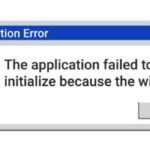Mistakes in a business are bound to happen.
Some can be small and easy to fix, while others can create serious problems. If your accounts payable (AP) process is full of errors, it can lead to cash flow problems, supplier disputes, and even compliance risks.
Keeping your AP in order is about maintaining good supplier relationships, avoiding late fees, and keeping your business financially stable.
Here are six costly accounts payable mistakes to avoid.
1. Not Keeping Track of Payment Deadlines
Missing a payment deadline can lead to penalties, damaged supplier relationships, and even interrupted services.
Some vendors may impose hefty late fees, which add up over time and impact your bottom line.
How to Avoid it:
● Set up automated reminders for payment due dates.
● Use AP automation tools to track invoices.
● Keep a well-maintained business checking account to ensure funds are available for timely payments.
2. Failing to Match Invoices with Purchase Orders
One of the most common accounts payable mistakes is processing payments without verifying that the invoice matches the purchase order and receipt of goods.
This can lead to overpayments, duplicate payments, or underpayments.
How to Avoid it:
● Implement a three-way matching system—compare the invoice, purchase order, and receipt before approving payment.
● Train your team to double-check details before processing payments.
● Regularly audit vendor invoices for discrepancies.
3. Paying Duplicate Invoices
Businesses often end up paying the same invoice twice, either due to human error or lack of a proper verification system. This can drain your cash reserves and create reconciliation issues.
How to Avoid it:
● Use accounting software to flag duplicate invoices.
● Assign a team member to review invoices before processing.
● Maintain a centralized system for invoice storage and tracking.
4. Ignoring the Importance of Approval Workflows
Without a proper approval process, unauthorized payments can slip through. This can lead to financial losses, fraud, and compliance risks.
How to Avoid it:
● Set up a clear approval hierarchy for invoice processing.
● Ensure all invoices go through a structured approval process before payment.
● Use digital AP tools that require multiple approvals before funds are released.
● Regularly assess and update the approval process to manage gaps or incompetencies.
5. Not Reconciling Bank Statements Regularly
Failing to reconcile your bank statements with your AP records can lead to discrepancies, fraud, or missed errors that can impact your financial health.
How to Avoid it:
● Reconcile bank transactions with AP records at least once a month.
● Keep a separate business savings account for emergency funds.
● Assign a dedicated team member to oversee bank reconciliation.
6. Poor Vendor Communication
If your vendors don’t receive payments on time or there are constant errors in invoices, your business relationships can suffer. Late or incorrect payments can result in halted services and late fees.
How to Avoid it:
● Maintain clear and open communication with vendors regarding payment terms.
● Regularly update vendor contact details and payment preferences.
● Use an efficient payment process for accounts payable to facilitate smooth transactions.
Payment processing by SBI California
SBIC has banking products and services that can help you streamline your payment processes, which can enhance your relationships with your suppliers and vendors.
Final Thoughts
A well-managed accounts payable practices SOP is essential to maintaining your business’s financial health.
Make sure your AP system is streamlined, organized, and secure.
Whether it’s using automation tools, setting up clear approval workflows, or maintaining a dedicated business bank account, small improvements can lead to big financial gains.
READ ALSO: Spyne vs HubSpot vs Salesforce: Top Automotive CRM Comparison











